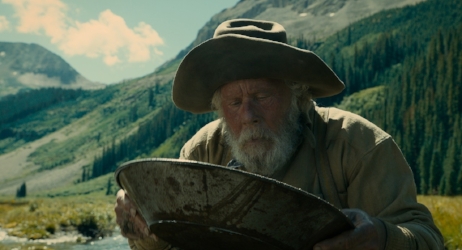Review: "The Favourite"
Two years ago, I came close to ranking Yorgos Lanthimos’ The Lobster as the worst picture of 2016. What (inexplicably) enamored countless film buffs stuck me as dreary bombast, made only faintly tolerable by Colin Farrell’s committed leading turn.
If Lanthimos’ latest picture, The Favourite, is also hardly my cup of tea, it is at least an exquisitely designed and memorably acted picture. If anything, it most recalls last year’s Phantom Thread, a film unimpeachably not without merit that ultimately left a far greater impression on most of my fellow moviegoers.
The Favourite, which despite this middling review is destined for a healthy awards season run, opens on England toward the beginning of the 18th century. The nation remains at war with France and presiding over the throne is Queen Anne (Olivia Colman), the fragile, volatile leader who is immeasurably assisted by friend and adviser Sarah Churchill (Rachel Weisz), the Dutchess of Marlborough.
Throwing this world for a loop is the entrance of Sarah’s cousin Abigail Hill (Emma Stone), who has arrived at the castle in search of employment. Sarah looks down upon Abigail, whose gambling father ravaged the family name, but agrees to provide her with humdrum work. Abigail gradually wins over Sarah and especially the Queen and, before long, plots to win Anne’s favor at the expense of Sarah. When Sarah becomes conscious of Abigail’s manipulations, a battle of wits is set in motion to dispose of the other and secure a place alongside the Queen.
The Favourite is a feast for the eyes, sumptuously photographed by Robbie Ryan, with lavish costumes and art direction by Sandy Powell and Fiona Crombie & Alice Felton, respectively. Weisz does some career-best work as the increasingly irrelevant Sarah, while Colman does not allow an inch of scenery to go uneaten as the disorderly Queen.
Less convincing is Stone, who portrayal rings as strained vis a vis the lived-in turns by Weisz and Colman. Where Weisz especially is able to convey so much through so little, Stone’s performance is more elaborate, yet less full of surprises. The screenplay, by Deborah Davis and Tony McNamara, provides Colman with a handful of zesty zingers, yet otherwise makes for an only intermittently uninvolving picture, one which provides the rest of the cast, beyond the central trio, without much of anything to do.
There’s no denying the visual beauty of The Favourite, nor the spunk with which Weisz and Colman approach their roles, but it otherwise never takes off as it should - another clumsy effort from a filmmaker whose cinema I evidently just don’t much like.
B-





